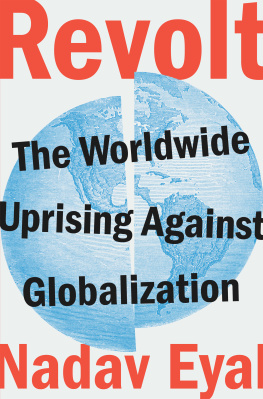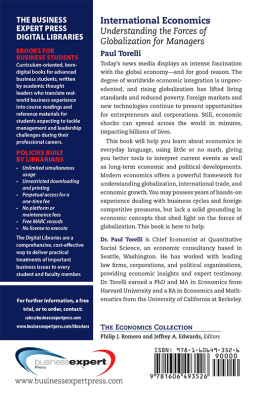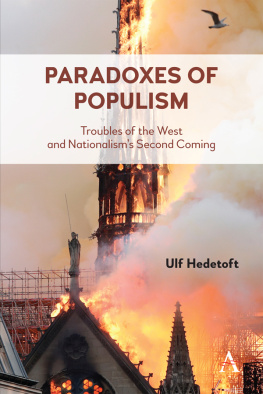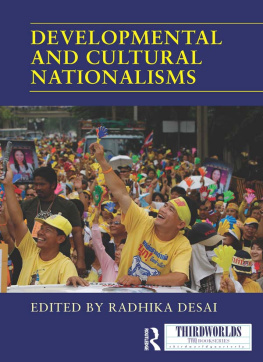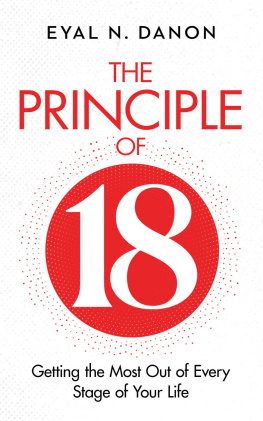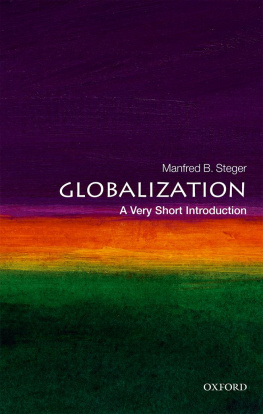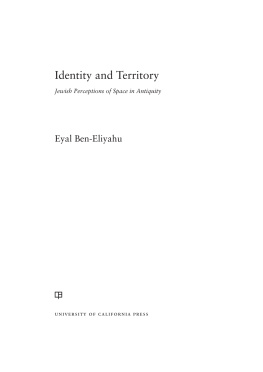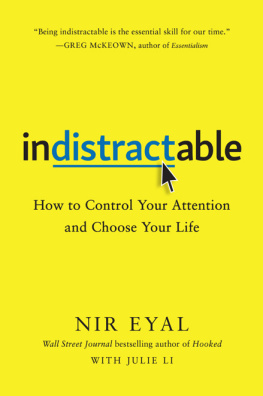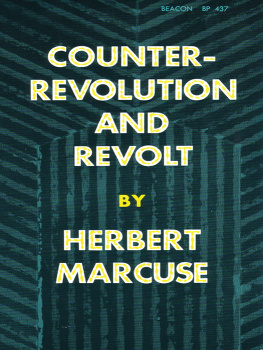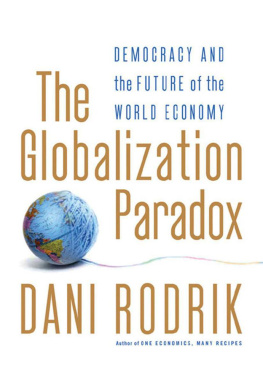To Tamar
... And they seemed unto him but a few days
If there is no struggle, there is no progress.
FREDERICK DOUGLASS,
WEST INDIA EMANCIPATION SPEECH, 1857
Contents
T he building looks like a typical office tower that can be found in every prosperous city center, from Manhattan to London to Tel Aviv. The VIPs are led through a back corridor to a small service elevator, completely inappropriate to the occasion, adding to the mysterious ambience. The elevator descends and its door opens, revealing the venue for the nights eventa family wine cellar, a secret one, our host says. At one end of the room, a famous chef is preparing our dinner. All along the walls, behind glass, lie bottles of wine flown in from vineyards all over the world. The guestshigh-tech entrepreneurs, a former prime minister, a former senior army officer who is now a social entrepreneur, the CEOs of leading corporationsare impressed, and they are not easily impressed. Everyone thereindeed, most everyone everywhereknows the generous hosts name.
As we seat ourselves around a table, I look around and count the uber-wealthy. Im pretty sure I am the only guest who drove here in a Toyota Corolla with a loose bumper.
Ive been invited to speak about the international situation, about globalization and the revolt against it. My audience in the expertly lit wine cellar listens attentively to my accounts of populations bypassed by the prosperity generated by the present world order, and of how giant technology companies have avoided responsibility for the ills of the connected world they have created. I argue that liberal values are being challenged by a resurgence of enemies of progress, and suggest that young people have become less inclined to fight for democracy and instead are calling for radical solutions. The numbers, I note, show that humanity is doing well in general. Why then, do so many people feel so trapped?
I should have known what the reaction would be. The 1 percenters feel, for the most part, that the crisis of 2008 was but a passing cloud; that Trumps election was but a onetime historical fluke; and that progressthat is the aristocratic version of progress to which they subscribeis unstoppable. Our munificent host and one or two of his guests grasp the thrust of the analysis, even if they do not accept it. The others balk. Its overblown pessimism, one of them suddenly says, and the others begin to chant pe-ssi-mi-sim. They quickly counter me with the common wisdom: Its a wave of populism, a brief backlash that will pass without causing significant damage. The conversation degrades into the kind of anachronistic discourse characteristic of people born in the 1950s and 60s, including clichs such as confidence breeds success, fortune favors the bold, the young will grow up, and we cant go back to the Dark Ages. Most of them have no interest in listening to what I have to say. Instead, they want to instruct meand through me, my generationthat all will be well if we just think positively. Dessert is served, elegantly ending the debate, such as it was. Its easy to disagree politely when your childrens future is ensured by low-risk bonds.
The dinner somehow reminded me of a much more dramatic event I attended as a journalist two years previously. Anxiety was ubiquitous at both gatherings. Its just that when the super-rich are anxious, they wrap themselves in cellophane-like packaging that crackles with optimism. The middle class adopts a much simpler tactic: outrage.
The evening of November 8, 2016, was festive and crisp in Manhattan. A cloudless sky was visible through the glass ceiling of the Javits Center, ready for the crowning of the new leader of the free world. Hawkers outside were doing a brisk businessPresident Hillary t-shirts, showing her in a Superwoman costume; First Husband Bill Clinton t-shirts; campaign buttons of all colors, souvenirs of the historic day. Hundreds of policemen and security personnel were deployed outside, along with an army of broadcast vehicles and an entire field of satellite dishes. The media presence was many times larger than that assigned to the more spare headquarters of the Trump campaign, less than half a mile away as the crow flies. She means to rise, wrote the poet Maya Angelou about Clinton back in 2008; now she was about to break free of those rusty chains and become the most powerful person in the world.
Representatives of America, of all the colors of the rainbow, were placed on the stage. There were straights and gays, Hispanics and blacks and whites, women and children. They were to serve as models of the new age that Clintons election heralded. With infinite patience, they sat there for long hours, waiting for those few seconds their children would see on television and forever cherish, that image of them with the first woman to be elected president of the United States of America. Even when the skies grew dark over the Javits Center, they did not budge from their seats.
In the end, of course, Clinton never showed up. She did not see the celebration prepared for her. Night fell and swept it all away.
Theres something brutal about the journalists gaze. He sees the image as it develops, from a distance that gives him perspective. He observes the disappointment as it spreads through the crowd, the shocked gasps, the tears and the heartbreak, the banality of human reactiondenial, disappointment, the desperate hope that continues to percolate among the believers.
When the results began to come in, the eyes of the Clintonistas were glued to their smartphones, murmuring in disbelief. That was exactly the point. They couldnt believe it, they couldnt understand how this could be happening. Many wept. One told me that, as a Jew and a homosexual, he feared a new Holocaust.
I asked him if that was just a figure of speech.
No, he sobbed, Im really scared.
On the face of it there seems to be no connection between the distraught and panicked Clinton campaigners on that autumn night and the self-assured rich whom I met in the wine cellar. The latter were resolutely optimistic, determined to explain just how the world order that is so good for them, personally, is so great for everyone else. Clintons supporters sensed that democracy was endangered and that they had been robbed of their future. But the point is that both shared a deep, unspoken fear. The 1 percenters dealt with it by euphorically hiding their heads in the sand; the Clinton campaigners coped by covering the floor of the Javits Center with the tears they shed.
They were not only frightened by the prospect that Trump, the advocates of Brexit, European nationalists, or Islamist fundamentalists would propel the world toward catastrophe. After all, if such a catastrophe were to come, it would demonstrate just how correct they had been in their faithfulness to liberal values or to the market economy. No, what they feared was not a cataclysm but the oppositethat the other side, that Trump, might be successful. His success would mean a world with an enduring anti-liberal order and severely constrained global cooperation.
It would be a world in which bedrock beliefsin the victory of good over evil in World War II, in freedom as a precondition for prosperity, in the rejection of bigotry, in the principle of womens rights over their bodies, and most of all the fervent faith in the overarching value of progresswould turn out to be ephemeral. For them, history would stop, and then reverse. For many, the years since have proved that the shift has already begun.
I AM NEITHER A MERICAN NOR E UROPEAN. I LIVE IN A DISTANT province that shelters under the wings of the American empire. From here I can be an observer, with the luxury of some emotional detachment from the coming storm. In 2016, some months before Election Day, I set out on a journey through the United States, seeking an answer to a simple question: If Trump were to win, how would it happen? The polls said it was nearly impossible, but I was skeptical. In Pennsylvania, one of the cornerstones of the Industrial Revolution, I sat in the living room of a coal mining family as rain fell outside and the wind shrieked. The family was as grim and despondent as the weather, lacking a trace of the American optimism that I so put my trust in. Black activists in Philadelphia told me that President Obama was simply one more mask worn by whites who were killing innocent residents of their neighborhoods. They vowed not to vote for that Hillary person. A little girl in Charlotte, North Carolina, told me with tears in her eyes that a classmate had stopped inviting her to her birthday parties because her mothers are transgender women. In her story I could feel the burgeoning animosity toward the new America. In the same state, I attended Sunday services in a church whose preacher maintains that the United States would be punished with a plague worse than Ebola for condoning homosexual sodomy. I asked him if his America was not passing from this world; his response was, Hey, dont bury us yet!
Next page
